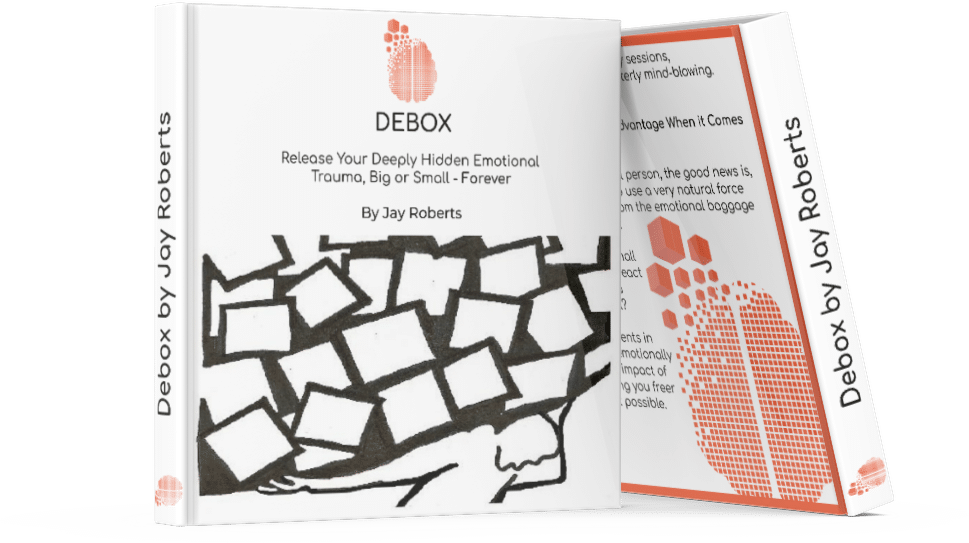Being Ignored Triggers Me.
Do This To Resolve It.
note: name changed from Emotional Trigger Method
to the Debox Method*
In this episode, we’re looking at a question that many listeners have asked us: Why do I get so upset when people ignore me?
Have you ever been in a situation where you feel like you’re being ignored by someone? Maybe you sent a text message and didn’t get a response, or you walked into a room and no one acknowledged you. How did that make you feel?
Did you feel upset, angry, or hurt?
Feeling ignored can be a frustrating and difficult experience, and it’s not uncommon for people to feel upset or triggered in these situations. But why do we feel this way?
Let’s take a closer look.
First, it’s important to understand that feeling ignored can trigger our social pain pathways. Humans are social animals, and we have evolved to thrive in social environments where we feel a sense of belonging and connection with others.
When we are ignored, this social connection is disrupted, and our brains interpret this as a threat to our social status and identity.
This social pain can be just as real and intense as physical pain. In fact, research has shown that the same neural pathways that are activated when we experience physical pain are also activated when we experience social pain. This means that feeling ignored can literally hurt.
In addition to the social pain that comes with being ignored, there are also cognitive and emotional factors at play. For example, feeling ignored can trigger feelings of rejection and inadequacy. When we don’t receive a response to our message or don’t get acknowledged when we enter a room, we might start to wonder if we’re not important or valued by the people around us.
This can lead to feelings of sadness, anger, or even shame.
Another possible reason why people might feel upset or triggered when they’re ignored is that it can activate their attachment system. The attachment system is a set of behaviors and emotions that we use to form and maintain close relationships with others. When we feel like we’re being ignored, our attachment system can be activated in an attempt to reestablish the connection.
This might manifest as seeking out attention or reassurance from others, or even becoming more persistent in our attempts to reach out to the person who ignored us. These behaviors can sometimes be seen as clingy or needy, but they are a natural response to the perceived threat to our social connection.
So, what can we do to cope with feeling ignored? One strategy is to recognize that our feelings are valid and understandable.
It’s okay to feel upset or triggered when someone ignores us, and we don’t need to dismiss or invalidate those feelings.
At the same time, it can be helpful to challenge any negative thoughts or beliefs we might have about ourselves in these situations. For example, if we start to believe that we’re not important or valued because someone didn’t respond to our message, we can remind ourselves that this is not necessarily true. There could be any number of reasons why someone might not respond, and it doesn’t necessarily mean that they don’t care about us.
Another helpful strategy is to focus on building and maintaining a sense of self-worth and resilience. When we have a strong sense of self-worth, we are less likely to be triggered by external events like being ignored. We can also develop resilience by practicing self-care and seeking out supportive relationships with people who value and appreciate us.
It’s also important to communicate openly and honestly with others about how we’re feeling. If someone’s behavior is making us feel ignored or undervalued, we can try to have a conversation with them about it. They might not even be aware of how their behavior is affecting us, and opening up about our feelings can help to strengthen the relationship and prevent future misunderstandings.
In conclusion, feeling upset or triggered when someone ignores us is a natural and understandable response to a disruption in our social connection.
By understanding the social, cognitive, and emotional factors that contribute to this response, we can start to develop strategies for coping and building resilience. Remember, it’s okay to feel upset or triggered when we’re ignored, but we can also challenge negative thoughts and beliefs, focus on building self-worth and resilience, and communicate openly and honestly with others to strengthen our social connections.
It’s also important to note that feeling ignored can be a symptom of larger issues in a relationship or social environment. For example, if you consistently feel ignored or undervalued by a particular person or group, it might be worth examining the dynamics of that relationship and considering whether it’s a healthy and fulfilling connection for you.
In some cases, seeking out the help of a therapist or counselor can also be beneficial in processing feelings of being ignored and developing coping strategies. A mental health professional can provide support and guidance in navigating complex emotions and relationships.
In conclusion, feeling upset or triggered when someone ignores us is a common and understandable response to a disruption in our social connection. By understanding the factors that contribute to this response and developing strategies for coping and building resilience, we can navigate these situations with greater ease and strengthen our social connections over time.
So, what can you do when you feel upset or ignored by someone?
First, it’s important to recognize that your feelings are valid and to give yourself permission to experience them. Second, try to identify the specific triggers that are contributing to your emotional response.
This may involve exploring your own insecurities and beliefs about yourself, and considering how these may be impacting your reactions. Finally, consider reaching out to someone who understands these things and can give guidance or even teach you how to remove these negative feelings that no longer serve you. We no longer need to be a slave to our impactful negative triggers.
Talking about your feelings with someone you trust and who will not judge you, can help you process them and gain a different perspective on the situation.
In conclusion, feeling upset when someone ignores us is a common human experience, and can be related to our own self-esteem, personal triggers, and insecurities.
However, it’s important to recognise that our feelings are valid and to take steps to support ourselves in these moments of emotional distress. There is nothing wrong with you.
It’s normal!
The main thing is to accept these feelings but not act on them!
Don’t send that angry message or attack the person who you feel is ignoring you.
By acknowledging our own needs and seeking support when needed, we can learn to understand, navigate and even remove these difficult emotions with greater ease and build greater resilience.


